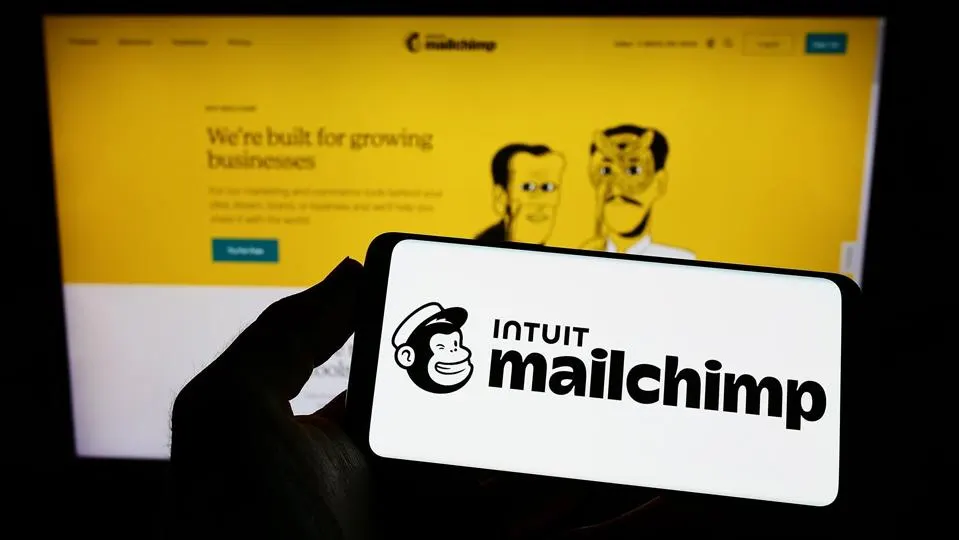How Google Sets Goals: The OKR Approach
2 July 2021
Shortly after its first year of existence, Google adopted a goal-setting approach that they still use today. They rely on the Objectives and Key Results framework that founders Larry Page and Sergey Brin were first introduced to in 1999 by venture capitalist John Doerr. Although you might say, “Our company is not like Google,” the Objectives and Key Results framework works for any company in any industry.

As a Young Startup Google Adopted OKRs
When John Doerr, one of Google’s investors, shared the Objectives and Key Results framework with Larry, Sergey and their small group of employees he defined OKRs on his first presentation slide, “A management methodology that helps to ensure that the company focuses efforts on the same important issues throughout the organisation.”
OKRs include objectives and key results. Objectives outline what you wish to achieve. They are action oriented, concrete and inspirational. Key results tell you how you will get to the objective and monitor your progress. They are time-bound, specific and measurable.
While the young company had a plethora of ideas, they needed a framework to ensure they executed those ideas effectively and Doerr believed OKRs could provide it.
As Doerr relays in his book, Measure What Matters, the Google team seemed intrigued with the concept of OKRs once he completed his presentation. The Google leaders recognised they needed an organising principle and since OKRs are data-driven and agile, it was an appealing framework to a company that knew the importance of data. Additionally, the transparency offered with OKRs was also a benefit to Google, a company who was committed to an open web and open systems.
Key Ways OKRs Work for Google from Start-up to Today
Not only did Google commit to OKRs when the company was still in start-up mode, they continue to be committed to it today. They deploy OKRs at the individual, department and company levels. This presentation by Rick Klau from Google Ventures explains how OKRs are used in practice at Google. No, your company doesn’t have to be Google to find value in OKRs, because it provides an easy-to-follow system for companies of any size. Google does the OKR process annually to set big umbrella objectives for the year that can still be modified based on what transpires as the year goes on. They also set four to six OKRs each quarter. Google encourages its team to set these quarterly goals as high as possible. One of the benefits of the OKRs process is that everyone in the company is focused on the same objectives.
At the end of each quarter, Google team members grade their key results on a 0-1 scale. Since OKRs should be ambitious, it is not expected that you’d get a 1 on each key result, but actually hitting .6-.7 indicates your OKRs are appropriately ambitious. This grading process should only take minutes.
One of the core attributes of OKRs is that they are transparent. Yes, from Larry Page on down the Google organisation, every Google employee can see another’s OKRs and scores. This clarity regarding objectives and key results helps the entire organisation stay focused and on the same page.
While OKRs are not a system to evaluate an employee’s performance, they can be handy for an employee to reference and remember the things they did for the company as part of the OKR process.
Why Google Uses OKRs
Google executives often credit the use of OKRs for contributing to its success. If you’re trying to implement the same system into your organisation but aren’t getting the buy-in you need, perhaps some of these reasons why OKRs drive results can help you persuade decision-makers.
1. ClarityWhen goals aren’t met, sometimes it’s because the team didn’t understand what was needed to achieve them. OKRs that are executed correctly don’t have this problem because they are clear and outline the measurements required for each key result to achieve the objective. If those measurements aren’t hit, the goal was not achieved.
2. AlignmentSince every employee’s OKRs are built to support an overall company OKRs, there is alignment and focus in achieving company OKRs. Google managers ensure that when OKRs are drafted, they are both top down and bottoms up.
3. Ongoing goal managementThe OKR process is cyclical, so once a quarter ends another set of OKRs are drafted. When goal management is continuous instead of an event, incredible results begin to occur.
4. FormulaicThere is no room for chaos in the easy-to-implement OKR process, which helps Google, and other companies who use OKR, stay on track.
There are many reasons for Google’s success, but one can’t argue the importance and consistency of OKRs for being a big part of where Google is today.
Where to go from here.
If you would like to know more about the OKR approach to objective setting, cheque out my articles on:
- What are OKRs? A Super Simple Explanation Of The Objectives and Key Results Management Tool,
- OKR Examples: Real World Objectives And Key Results,
- What are the Pros and Cons of Using OKR?,
- OKRs vs KPIs: What is the Difference
Related Articles
How Generative AI Will Change The Job Of Real Estate Agents
Real estate agents and other professionals in their industry are in the business of selling good old-fashioned solid bricks and mortar.[...]
How BCG Is Revolutionizing Consulting With AI: A Case Study
In a world where AI is transforming every sector, companies are constantly seeking ways to gain a competitive edge.[...]
The Biggest Education Trends Of The Next 10 Years
Education is changing rapidly. In today’s fast-moving world, a model where we graduate in our youth prepared for a lifelong career is simply no longer valid.[...]
Is This AI’s IPhone Moment?
Today, the term “iPhone moment” is frequently used to refer to a technology breaking through into the mainstream.[...]
AI Politicians: The Future Of Democracy Or A Threat To Freedom?
2024 is a big year for democracy, with over two billion of us voting in elections across the US, India, the EU, the UK and many other countries and territories.[...]
How Mailchimp Hopes To Build The End-To-End AI Solution For SMEs
I often write about AI's potential to transform any business. Yet, a question I frequently get from small businesses is, "Does that really include us?"[...]
Sign up to Stay in Touch!
Bernard Marr is a world-renowned futurist, influencer and thought leader in the fields of business and technology, with a passion for using technology for the good of humanity.
He is a best-selling author of over 20 books, writes a regular column for Forbes and advises and coaches many of the world’s best-known organisations.
He has a combined following of 4 million people across his social media channels and newsletters and was ranked by LinkedIn as one of the top 5 business influencers in the world.
Bernard’s latest book is ‘Generative AI in Practice’.










Social Media